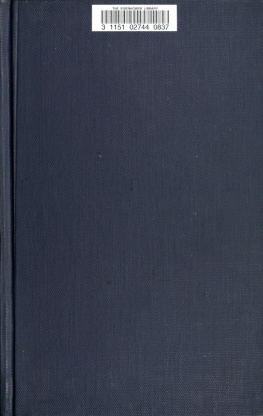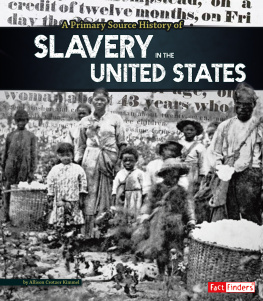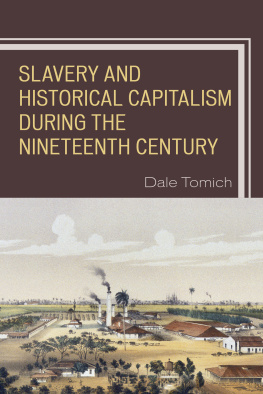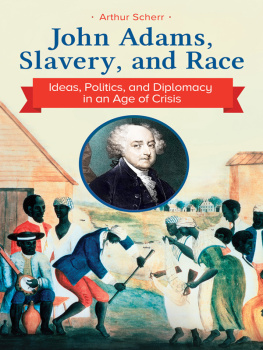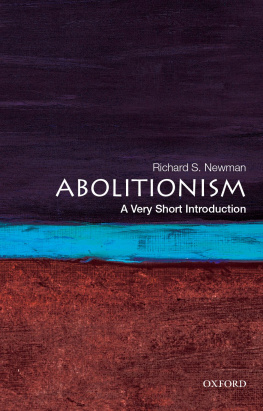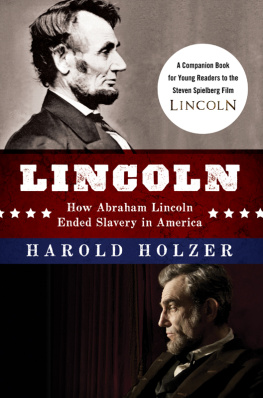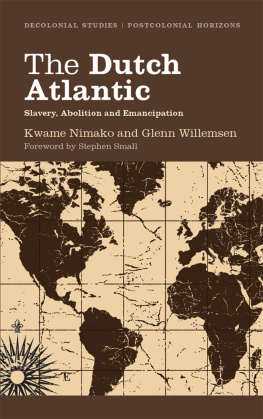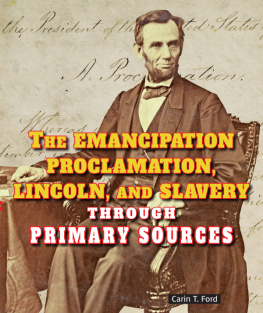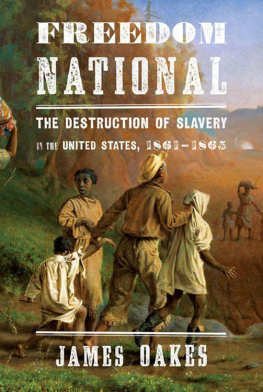Eighty-Eight Years
RACE IN THE ATLANTIC WORLD, 17001900
Published in Cooperation with the Library Company of Philadelphias Program in African American History
SERIES EDITORS
Richard S. Newman, Rochester Institute of Technology
Patrick Rael, Bowdoin College
Manisha Sinha, University of Massachusetts, Amherst
ADVISORY BOARD
Edward Baptist, Cornell University
Christopher Brown, Columbia University
Vincent Carretta, University of Maryland
Laurent Dubois, Duke University
Erica Armstrong Dunbar, University of Delaware and the Library Company of Philadelphia
Douglas Egerton, LeMoyne College
Leslie Harris, Emory University
Joanne Pope Melish, University of Kentucky
Sue Peabody, Washington State University, Vancouver
Erik Seeman, State University of New York, Buffalo
John Stauffer, Harvard University
PATRICK RAEL

Eighty-Eight Years
THE LONG DEATH OF SLAVERY IN THE UNITED STATES, 17771865

A Sarah Mills Hodge Fund Publication
This publication is made possible, in part, through a grant from the Hodge Foundation in memory of its founder, Sarah Mills Hodge, who devoted her life to the relief and education of African Americans in Savannah, Georgia.
2015 by the University of Georgia Press
Athens, Georgia 30602
www.ugapress.org
All rights reserved
Set in 10/13 Adobe Caslon Pro by Kaelin Chappell Broaddus
Most University of Georgia Press titles are available from popular e-book vendors.
Printed digitally
Library of Congress Cataloging-in-Publication Data
Rael, Patrick.
Eighty-eight years : the long death of slavery in the United States, 17771865 / Patrick Rael.
pages cm. (Race in the Atlantic world, 17001900)
Includes bibliographical references.
ISBN 978-0-8203-3395-3 (hardcover : alk. paper) ISBN 978-0-8203-4839-1 (pbk. : alk. paper) ISBN 978-0-8203-4829-2 (ebook) 1. SlaveryUnited StatesHistory. 2. SlaveryCaribbean AreaHistory 3. SlaveryPolitical aspectsUnited StatesHistory. 4. SlaveryPolitical aspectsCaribbean AreaHistory I. Title. II. Title: 88 years, the long death of slavery in the United States, 17771865. III. Title: Long death of slavery in the United States, 17771865.
E441.R28 2015
306.3620973dc23
2014042982
British Library Cataloging-in-Publication Data available
FOR Lola, Alison, AND Mom
CONTENTS

FIGURES

.
.
.
.
.
ACKNOWLEDGMENTS

Americans are very used to hearing their own story. Most learn it a few times before graduating from high school, and many encounter it again a few times in college. They see it depicted in feature films and television documentaries, read many popular and scholarly books on it, and even live it themselves on weekends and vacations. For many of us, the past may be a foreign country where things are done differently, but it is not an unknown country, for we tour it often. This familiarity may obscure some unique qualities of our history. It is not easy to see anew our well-known tales, but the struggle to do so is worth it. This is a paradox of good history: sometimes, the familiar may be known only by rendering it a little bit strange.
As such an effort, I have sought to place one important American story, that of slaverys long demise in the United States, inside a larger story of the Atlantic world. Perhaps this way we may learn important lessons, or become excited anew about this aspect of our past. Things did not have to turn out the way they did. Our history owes to pieces of our past we would do well to become more conversant with.
I started this project wishing for a history that set the story of Americas long abolition of slavery in the context of Atlantic slaverys demise. Hubris quickly gave way to humility. My first and most profound gratitude is thus reserved for the hundreds, if not thousands, of scholars whose tireless dedication to understanding the history of slavery and African-descended people in the Atlantic world has made possible a gesture as immodest as the one I have essayed. This book stands as a humble gesture of thanks for the herculean efforts of several generations of scholars. I hope that navet rather than arrogance has driven my work, and that my enormous respect for the vast scholarship required by this subject will be at least partially evident in the text and notes. There are places in these pages, though, where my debt to others is too great to leave to citations. Though I take full responsibility for any ways I may have misread them, I would like to acknowledge the inspiration of Ira Berlin, David Blight, Michael Craton, David Brion Davis, Seymour Drescher, Douglas Egerton, Stanley Engerman, Paul Finkelman, Eric Foner, Eugene Genovese, Leon F. Litwack, James McPherson, James Oakes, Andrew OShaughnessy, Leonard Richards, Manisha Sinha, and Elizabeth Varon.
My goal has been to suggest some interpretive possibilities and help readers wrestle with the larger arc of antislavery and emancipation in the Atlantic world, all the while seeking to defamiliarize some aspects of our own history. My hope is for students of the American past to better understand that their story took place inside a much larger one. In working this way, I do not mean to suggest that American history is any more exceptional (and certainly not any better) than any other. As my colleague Daniel Levine is wont to argue about comparative history, different things are different. Still, generalization is a necessary business of historians. I have used certain concepts, such as the tension between periphery and metropole, as practical conceptual tools rather than methodological manifestos. The past stubbornly refuses to conform to the categories and patterns we construct for it, and its constant tendency to expose our arrogance in doing so keeps us humble and attentive. Inevitably, a work so broad, synthetic, and interpretive will inspire criticism, no doubt much of it warranted. Some feathers I have ruffled consciously and intentionally, confident in my own bent. Others I have done so inadvertently, out of the limitations of my own expertise. A work touching on so many subfields will doubtlessly draw fire from many directions. I bear full responsibility for any shortness in my grasp, but I do beg some sympathy for my reach.
I owe large debts to a number of colleagues, students, and friends. Derek Krisoff, once the senior acquisitions editor at the University of Georgia Press, enthusiastically endorsed my proposal for this book. Also at Georgia, Walter Biggins, Mick Gusinde-Duffy, and Beth Snead shepherded it to completion. They, along with my co-editors in the Race in the Atlantic World, 17001900 seriesRichard Newman and Manisha Sinhahave been exceptionally helpful, as have many on its editorial advisory board. I am proud that our series bears the imprint of the Library Company of Philadelphias Program in African American History, which has given so much to scholars in this field.
Next page

